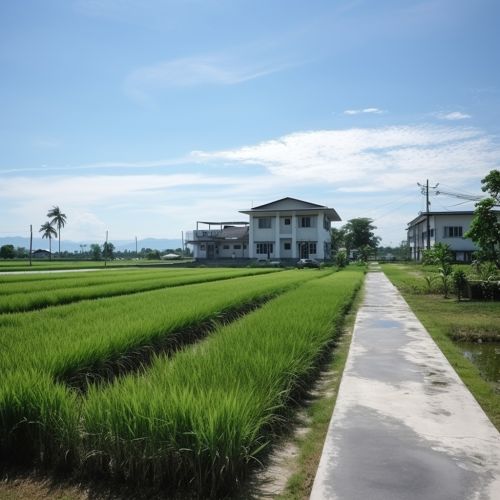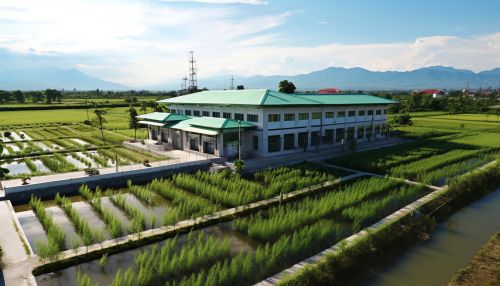Philippine Rice Research Institute
Overview
The Philippine Rice Research Institute (PhilRice) is a government-owned and controlled corporation (GOCC) of the Philippines that is attached to the Department of Agriculture. It was established by Executive Order No. 1061 on November 5, 1985. The institute is responsible for developing high-yielding and cost-reducing technologies so farmers can produce enough rice for all Filipinos. It also leads in exploring rice farming solutions to climate change and rapidly growing populations.
History
The Philippine Rice Research Institute was established in response to the growing need for a national rice research system capable of generating technologies that would significantly contribute to the growth and development of the rice farming industry in the Philippines. The institute was created through Executive Order No. 1061, signed by then-President Ferdinand Marcos on November 5, 1985. The order mandated the institute to serve as the primary entity responsible for coordinating and implementing the country's rice research and development program.
Mandate and Functions
PhilRice is mandated to help ensure a stable supply of rice in the country. Its primary function is to develop, adapt, and promote the adoption of modern rice farming technologies that are suitable for the different rice farming environments in the Philippines. The institute's functions include conducting research on rice farming systems, developing rice varieties with high yield potential and resistance to pests and diseases, and providing technical assistance to rice farmers and other stakeholders in the rice industry.
Research and Development
The institute's research and development efforts are focused on creating technologies that can help improve the productivity and profitability of rice farming. These technologies include the development of new rice varieties, improvement of rice farming systems, and the creation of post-harvest and processing technologies. The institute also conducts research on the socio-economic aspects of rice farming and the rice industry as a whole.
Extension Services
In addition to its research and development activities, PhilRice also provides extension services to rice farmers and other stakeholders. These services include the dissemination of information on modern rice farming technologies, training of farmers and extension workers, and the provision of technical assistance. The institute's extension services are aimed at helping farmers adopt modern rice farming technologies and practices that can help improve their productivity and income.
Facilities and Branches
PhilRice operates a network of branch stations located in different rice-growing regions in the Philippines. These branch stations serve as the institute's field laboratories where research and development activities are conducted. The institute's main office and central experiment station are located in Science City of Muñoz, Nueva Ecija.
Achievements
Over the years, PhilRice has made significant contributions to the development of the rice industry in the Philippines. It has developed numerous rice varieties that are high-yielding, disease-resistant, and adapted to different rice-growing environments. The institute has also developed various rice farming technologies that have helped improve the productivity and profitability of rice farming in the country.
Challenges and Future Directions
Despite its achievements, PhilRice continues to face challenges in fulfilling its mandate. These challenges include the need to develop rice varieties that are resistant to emerging pests and diseases, the need to adapt to the impacts of climate change, and the need to address the socio-economic issues affecting rice farmers. To address these challenges, the institute is focusing its efforts on developing climate-smart rice farming technologies, improving its extension services, and strengthening its partnerships with other stakeholders in the rice industry.


